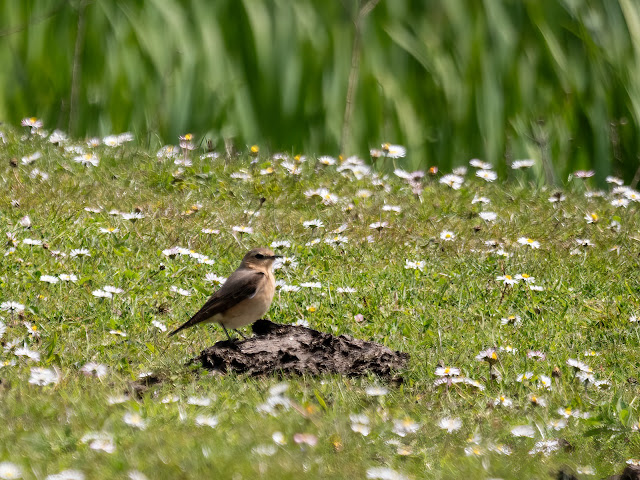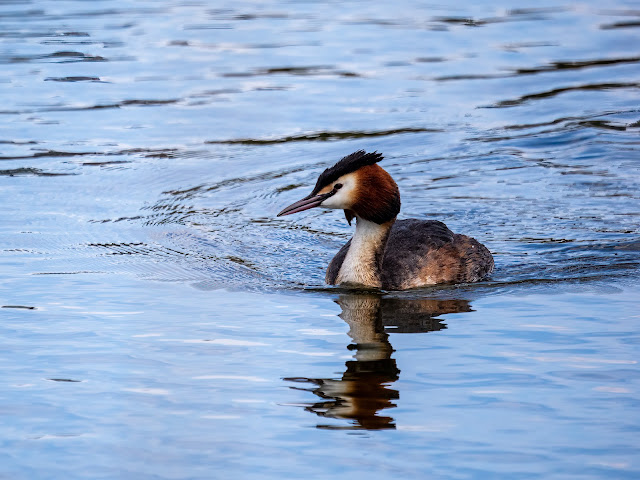WWT London Wetland Centre is a wetland reserve managed by the Wildfowl and Wetlands Trust in the Barnes area of the London Borough of Richmond upon Thames in south west London.
The site occupies more than 40 hectares of land which was formerly occupied by 4 disused Victorian reservoirs tucked into a loop in the Thames. These were converted into a wide range of wetland features and habitats before the site opened in May 2000. It was the first urban project of its kind in the UK. In 2002 an area of 29.9 hectares was designated a Site of Special Scientific Interest.
The site is important for resident, passage and wintering bird species, many of which can not be found anywhere else in London. In addition, there is a collection of captive wildfowl.
WWT London Wetland Centre is a site that I visit at least once a year, usually in winter to see 3 particularly elusive species: Bittern, Jack Snipe and Water Pipit.
However, the main purpose of today's visit was to hopefully see some spring/summer migrants. It was very successful and I added 4 species to my 2024 UK year list taking it to 138 species: Sand Martin, Whinchat, Wheatear, Common Sandpiper
I was fully expecting to see Sand Martin since this species had returned to the on-site breeding location a few weeks ago and birds were always in view flying over the main lake and lagoons.
The other 3 species were somewhat unexpected with at least 3 each of Whinchat and Wheatear visible for around an hour foraging from and around the electric predator fence surrounding the grazing marsh and a single Common Sandpiper seen briefly on the edge of the main lake.
The most notable sightings from my visit were as follows (heard only records in italics): Sand Martin (at least 50), Whinchat (1 male and 2 females), Wheatear (2 males and 1 female), Chiffchaff (1 singing male), Blackcap (1 singing male), Reed Warbler (at least 5 singing males), Cetti’s Warbler (at least 5 singing males), Reed Bunting (1 singing male), Ring-necked Parakeet (1 plus a few heard calling …. a surprisingly low number for this site!), Common Sandpiper (1), Lapwing (1), Oystercatcher (1), Grey Heron (4), Tufted Duck (c.20), Mallard (c.20), Common Pochard (8), Gadwall (1), Great Crested Grebe (1), Coot (c.20 including an adult with 4 juveniles), Moorhen (c.10), Mute Swan (c.10), Canada Goose (c.10), Greylag Goose (c.10), Cormorant (5), Herring Gull (at least 100), Lesser Black-backed Gull (at least 10), Black-headed Gull (c.10)
In addition, I saw the following: Common Lizard (1), Brimstone (6), Small White (5)
Here are some photos from my visit:
Photo: Common Lizard
Photo: Wheatear
Photo: Whinchat
Photo: Mute Swan
Photo: Mute Swan
Photo: Tufted Ducks
Photo: Lesser Black-backed Gulls and Herring Gull
Photo: Lesser Black-backed Gull
💚🦆 🦉🦋🐝🦊🦡🌼 🌳💚
Stay safe, stay well, stay strong, stay connected with nature


















No comments:
Post a Comment
If you feel like commenting on my blog, you can contact me by completing the comment form below. I will respond to all comments and enquiries and constructive criticism will always be welcomed.